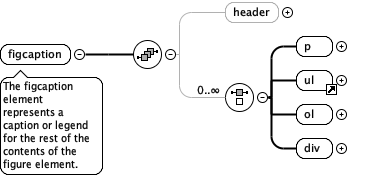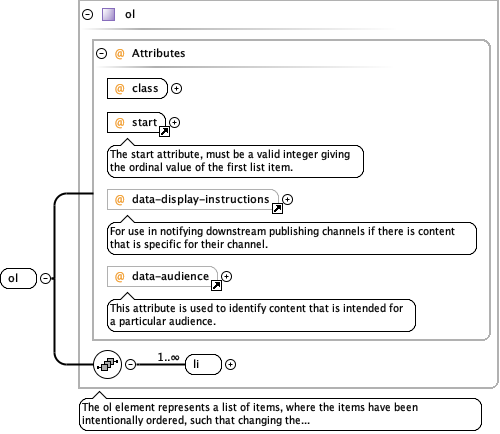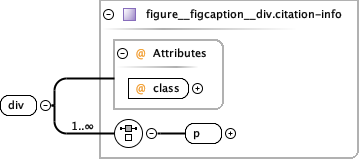Diagram
Properties
content
complex
mixed
true
Children a br cite em i img ruby s small span strong sub sup time u
Instance
<p data-aid= "" data-audience= "" data-display-instructions= "" data-translation-instructions= "" id= "" >
<em itemprop= "" itemscope= "" itemtype= "" > {1,1} </em>
<i itemprop= "" itemscope= "" itemtype= "" > {1,1} </i>
<cite itemprop= "" itemscope= "" itemtype= "" > {1,1} </cite>
<strong itemprop= "" itemscope= "" itemtype= "" > {1,1} </strong>
<a class= "" itemprop= "" itemscope= "" itemtype= "" > {1,1} </a>
<img alt= "" class= "" data-deprecate-style= "" data-deprecate-web-url= "" itemprop= "" itemscope= "" itemtype= "" src= "" > {1,1} </img>
<small > {1,1} </small>
<sub > {1,1} </sub>
<sup class= "" > {1,1} </sup>
<br > {1,1} </br>
<s > {1,1} </s>
<time datetime= "" itemprop= "" itemscope= "" itemtype= "" > {1,1} </time>
<u class= "" itemprop= "" itemscope= "" itemtype= "" > {1,1} </u>
<span class= "" data-translation-instructions= "" itemprop= "" itemscope= "" itemtype= "" > {1,1} </span>
<ruby > {1,1} </ruby>
</p>
Attributes
QName
Type
Use
Annotation
data-aid xs:string required
The data-aid attribute specifies its element's annotation unique identifier.
data-audience restriction of xs:string
optional
This attribute is used to identify content that is intended for a particular audience.
data-display-instructions restriction of xs:string
optional
For use in notifying downstream publishing channels if there is content that is specific for their channel.
data-translation-instructions restriction of xs:string
optional
This attribute has a defined list of values, which include definitions that represent instructions for supplying content to translation services. This attribute should only be used if some sort of pre-processing is necessary to support translation of the content.
id id--for-annotatable-content required




